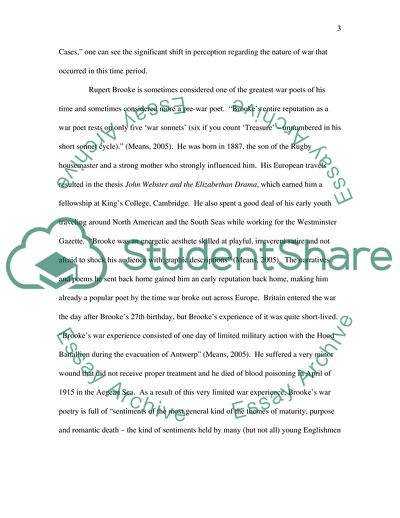Cite this document
(World War One Poetry: Rupert Brookes The Soldier and Wilfred Owens Assignment, n.d.)
World War One Poetry: Rupert Brookes The Soldier and Wilfred Owens Assignment. https://studentshare.org/literature/1704350-english-literaturecritically-evaluate-a-world-war1-poem
World War One Poetry: Rupert Brookes The Soldier and Wilfred Owens Assignment. https://studentshare.org/literature/1704350-english-literaturecritically-evaluate-a-world-war1-poem
(World War One Poetry: Rupert Brookes The Soldier and Wilfred Owens Assignment)
World War One Poetry: Rupert Brookes The Soldier and Wilfred Owens Assignment. https://studentshare.org/literature/1704350-english-literaturecritically-evaluate-a-world-war1-poem.
World War One Poetry: Rupert Brookes The Soldier and Wilfred Owens Assignment. https://studentshare.org/literature/1704350-english-literaturecritically-evaluate-a-world-war1-poem.
“World War One Poetry: Rupert Brookes The Soldier and Wilfred Owens Assignment”. https://studentshare.org/literature/1704350-english-literaturecritically-evaluate-a-world-war1-poem.


